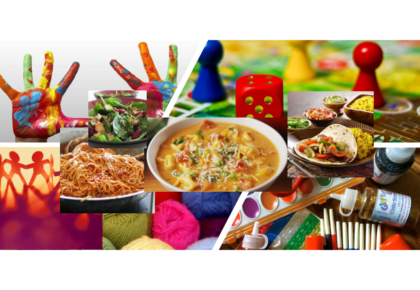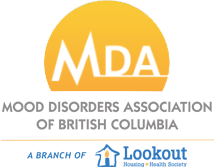UCV’s denominational affairs, update – 16 April 2023
Draft 2023 CUC Resolutions – UCV Members were invited to comment on the draft resolutions and action plans that CUC prepared for approval at the 19 May 2023 Annual General Meeting in Ottawa. Comments were invited in the following areas:
-
- Goals and strategic priorities
- Repudiation of the Doctrine of Discovery
- CUC Bylaw revisions
- 2023-24 Budget
What UCV members said is summarized anonymously CUC Proposed Resolutions Feedback from UCV – Rev for web 2023-04-17
[38 UCV members provided feedback. The summary is 14 pages and includes 8 charts showing distribution of support for various parts of the resolutions.]
Many (but not all) past CUC resolutions from 1969 to 2022 are available as pdf documents here.
Next steps in congregational discussions with CUC
- CUC staff and board members review and discuss feedback from up to 41 member congregations.
- CUC staff and board revise the resolutions and action plans or affirm them in their original form.
- CUC sends revised/reaffirmed resolutions back to member congregations for final review.
- UCV members review and discuss the revised/reaffirmed resolutions. UCV is planning an evening Forum in on 3 May 2023 at 7 pm via zoom, open to all members and friends to discuss the final versions of the resolutions and to brief UCV delegates about the AGM.
UCV’s delegates for the CUC AGM

- Each congregational Board appoints members to represent their congregation at the CUC AGM. Delegate numbers are proportional to congregational size. With 277 members and associate members, UCV is entitled to 6 delegates this year. For many years, Toronto, Ottawa, and Vancouver have had the three largest memberships in Canada. By recent count there were 43 CUC member congregations.
- Some boards give direction to their delegates regarding how they wish them to vote. For example, some delegate groups split their support for resolutions based on the level of support amongst their members. Others ask delegates to vote according to their conscience, or in a manner that they believe will be in the best interests of the congregation or the national movement.
- The UCV Denominational Affairs Committee orients UCV delegates by discussing with them the history and implications of the resolutions and action plans and the technical side of voting if participating by zoom.
- At the AGM, any official delegate may speak to and vote on the resolutions. Non-delegates may attend but may only speak at the meeting by invitation of the Chairperson. The AGM is scheduled from 9:00 AM to 12:30 PM Pacific, Wed 19 May 2023. See Canada Time Zone Map here. *All UCV Members are welcome to zoom in to the CUC AGM but must register in advance.
- After resolutions are passed (or defeated), CUC staff and volunteers begin/continue to work on implementing them (or not) and will report on their progress at the 2024 AGM.
Meanwhile, what else is happening nationally and internationally in the U*U world?
The Leadership and Design Team for International U/U Collaboration has been working to establish processes and a new organization to support the former Unitarian Partner Church Council and the work of the former International Council of Unitarian Universalists. The goal of the Leadership & Design Team is “to create an organizational framework for a new international Unitarian, Unitarian Universalist, and Free Church organization.” More about changes for the Partner Church Council here.
Kiersten Moore, UCV Director of Lifetime Faith Development and current CUC Secretary posted this on the CUC Leaders Google Group recently:
“There has been a lot of discernment and conversation happening around international U/U connections–I have only peripherally paid attention to what is going on, but I understand that the international relationships and work is valued and ongoing while in transformation. The UUA has, over the years, been accused of imposing its perspective and view on international UUs, being paternalistic in partner church relationships, and acting unilaterally as if they are themselves an international organization. I have heard a desire to be more intentional and collaborative from my conversations with people in UUA leadership with the goal of responsible relationship building.
I’m sure mistakes are made, such as the intern transition that Bruce Knotts mentions. The UUA staffing structure looks huge compared to the CUC, but they are still stretched for the number of members and breadth of regions that they serve. Institutions are unwieldy, but I hope we can all remember that they are made up of individual people and leaders bear the brunt of people’s dissatisfaction and frustrations. Let’s be compassionate and curious in our interactions.”
Some National & International Unitarian Connections
| Name | URL |
| Australian & New Zealand Unitarian Universalist Association (ANZUUA) | ANZUUA.org |
| British General Assembly of Unitarian and Free Christian Churches | Unitarian.org.uk |
| Canadian Unitarian Council (CUC) | CUC.CA |
| Church of the Larger Fellowship (a UUA congregation without walls) | CLF link |
| Flaming Chalice International (A Canadian charity active in Burundi) | FCI link |
| International Association for Religious Freedom | IARF.net |
| International UU organizations around the world (31 links courtesy of UUA) | UUs abroad |
| Leadership and Design Team for International U/U Collaboration (new in 2022) | LADT link |
| North American Unitarian Association (new in 2023) | naunitarians.org |
| One America Movement (Maryland, USA, non-denominational, newish) | OAM link |
| Sociocracy for All (Domain-based consensus decision-making) | SOFA link |
| UBC’s School of Public Policy and Global Affairs (Phil Lind Initiative) | UBC PLI |
| Ukraine – In solidarity with (UUA International Office) | UUkraine |
| Unitarian Congregations of Greater Toronto (UCGT) | UCGT.ca |
| Unitarian Universalist Association (UUA) (Based in Boston) | UUA.org |
| UU World – The magazine for Unitarian Universalists (published by the UUA) | UUWorld.org |

…Metis, Canadian Blood Services, Infinity…
Intersections of Spirit
-kw
City of Vancouver Sanitary Sewer design by Andrew Dexel,
Storm Sewer design by Nigel Dembicki,
photos by Keith Wilkinson.
More COV sewer design info here.




 The Outreach Opportunities Fund recipient for the period of February 2021 to May 2021 is the
The Outreach Opportunities Fund recipient for the period of February 2021 to May 2021 is the
You must be logged in to post a comment.